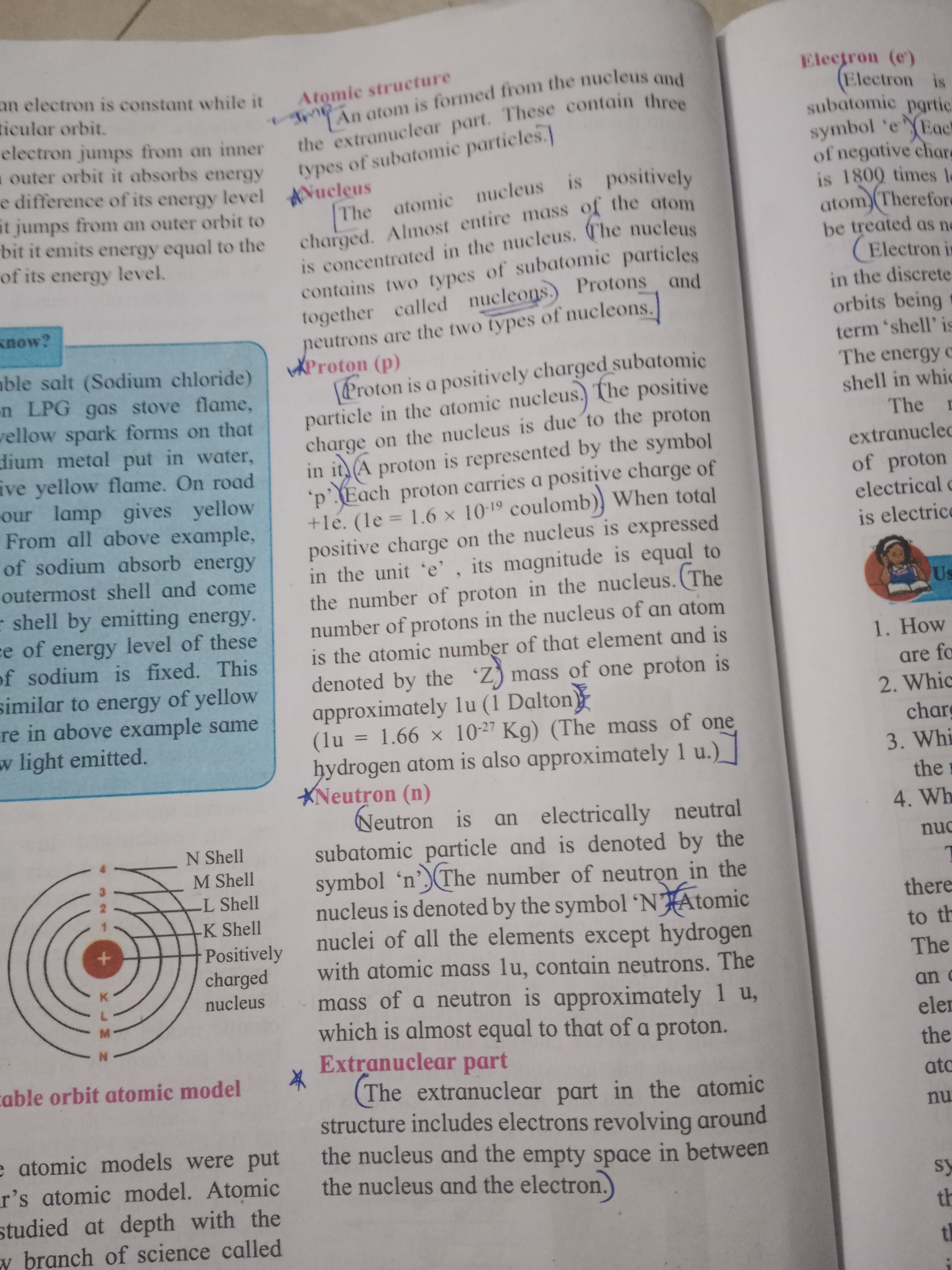What are the components and structure of an atom?

Understand the Problem
The question seems to be focused on the basic structure of an atom, which includes components like protons, neutrons, and the extraneous parts related to atomic structure.
Answer
An atom consists of protons, neutrons, and electrons.
An atom is formed from a nucleus and an extranuclear part, containing three types of subatomic particles: protons, neutrons, and electrons. The nucleus contains protons (positively charged) and neutrons (no charge), while electrons (negatively charged) revolve around the nucleus.
Answer for screen readers
An atom is formed from a nucleus and an extranuclear part, containing three types of subatomic particles: protons, neutrons, and electrons. The nucleus contains protons (positively charged) and neutrons (no charge), while electrons (negatively charged) revolve around the nucleus.
More Information
The electrons revolve in shells or orbitals around the nucleus. Protons and neutrons are collectively called nucleons. The number of protons in the nucleus defines the atomic number of an element, while the sum of protons and neutrons gives the atomic mass.
Tips
A common mistake is confusing the roles and charges of protons, neutrons, and electrons. Remember, protons are positively charged, neutrons are neutral, and electrons are negatively charged.
Sources
- The Chemical Foundation of Life - LibreTexts - bio.libretexts.org
- The Structure of the Atom – Introductory Chemistry - uen.pressbooks.pub
- Atomic structure - ARPANSA - arpansa.gov.au
AI-generated content may contain errors. Please verify critical information